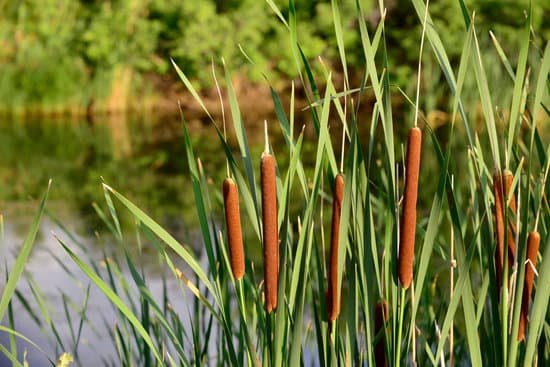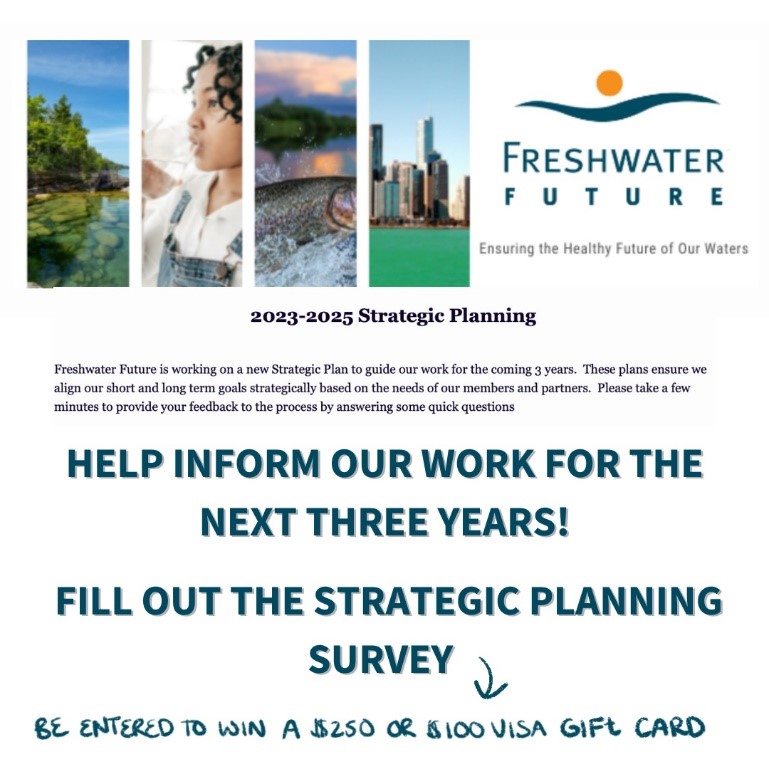
Freshwater Future Weekly: October 7, 2022
This Week: Share Your Opinion and Be Entered to Win Gift Cards; Sign up For Our 2022 Fall Convening: SRF Infrastructure Funding Challenges & Opportunities; Clean Water Act Endangered by the U.S. Supreme Court Case-Sackett v. EPA; Great Lakes Water Quality Agreement 50th Anniversary and Public Forum; Drilling Planned for the Chequamegon-Nicolet National Forest
Share Your Opinion and Be Entered to Win Gift Cards
Want to be a part of the change in Freshwater Future initiatives to help communities protect water? Please share your opinions to guide Freshwater Future’s new Strategic Plan for the coming three years. Hearing from our members and partners will ensure we align our short and long-term goals. Take five minutes to provide your feedback by answering some quick questions here. Complete our survey to help us with planning and you will be entered into a drawing for $250 and $100 Visa gift cards. The survey closes on October 10th, so make sure to have your voice heard now!

Sign up For Our 2022 Fall Convening: SRF Infrastructure Funding Challenges & Opportunities
On November 2nd, we will host our Fall All About Water Convening from 9:30 AM – 12 PM EST. Save the date for our session about SRF Infrastructure, featuring national experts, community leaders, federal, state and local officials and a Q&A session. The session will include a number of topics from discussing scoring processes and definitions to how residents can ensure that their voice is heard. Sign up for AAW here and help us spread the word!

Clean Water Act Endangered by the U.S. Supreme Court Case-Sackett v. EPA
With the 50th Anniversary of the Clean Water Act approaching, many eyes are on the most recent Supreme Court case that has the potential to undermine the Clean Water Act. On October 3rd, the U.S. Supreme Court heard oral arguments for Sackett v. EPA, a case that could reduce the number of wetlands and other waters across the U.S. protected under the Clean Water Act. This case poses a threat to many communities who depend on clean water, as polluters aim to diminish critical safeguards to our drinking water. A Supreme Court decision is likely to come between February to June 2023. Freshwater Future Executive Director, Jill Ryan comments with, “At a time when communities across the country are experiencing extreme flooding, it would be foolhardy to reduce our protections for the systems that naturally help reduce flooding.” You can show your support for the Clean Water Act by sharing our social media posts on Facebook, Twitter, and Instagram or using the #ProtectOurWaters hashtag.
Great Lakes Water Quality Agreement 50th Anniversary and Public Forum
Environmental and Climate Change Canada and the U.S. Environmental Protection Agency hosted a Public Forum for the 50th Anniversary of the Great Lakes Water Quality Agreement in Niagara Falls, ON from September 27-29. Communities around the Great Lakes gathered to discuss the state of the lakes, progress made under the Agreement, and proposed priorities to guide science and actions over the next three years. The Forum offered an opportunity for the public to provide input to the International Joint Commission, who is responsible for advising Canada and the U.S. with respect to the implementation of the Agreement. Freshwater Future Canada staff member Andrea Dube was present at the Forum. One of the most notable themes that came out of the forum was the need for First Nations and Tribal leaders to be at the decision-making tables and to be provided adequate funding to address the significant contamination issues (from past and current industrial activity) that continue to disproportionately impact First Nations and Tribal communities around the Great Lakes.
Drilling Planned for the Chequamegon-Nicolet National Forest
A mining company filed a “Notice of Intent to Drill” for copper and gold at six sites on leased private land and on federal land in the Chequamegon-Nicolet National Forest. This news comes after a recent land swap between the US Forest Service and the Wisconsin Board of Commissioners that has increased the US Forest Service’s holding of public land that can be used for mineral exploration and mining by over 1000 acres. The Menominee Indian Tribe and the Ho-Chunk Nation, along with many residents are concerned the drilling will destroy wetlands and pollute water resources. Before drilling can begin, the company must obtain several permits from the Wisconsin Department of Natural Resources. Stay tuned for more information on this issue.